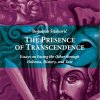Британски виолиниста са највише продатих албума на свету, Најџел Кенеди, одржао је концерт у Коларчевој задужбини. Реч је о првом од два распродата концерта у Београду.
Најџел Кенеди је шармантни и непосредни ексцентрик. Али, пре свега је врхунски професионалац који је готово до последњег тренутка брусио свој наступ.
Најџел Кенеди каже да је сам концерт време за самоувереност, али и давање.
"Концерт није тренутак за постављање питања у музици и размишљање о себи, већ о другима. Наступ је посебно време које су људи издвојили за себе. Желимо само да им пружимо задовољство", каже Кенеди.
.Сва одсвирана дела у целину је повезала јединствена енергија Најџела Кенедија и необична комбинација ритмова.
"Заиста боље свирам када публика каже да моје свирање ништа не ваља, да је глупост како свирам", каже Кенеди.
Програм који спаја Баха и Валера и виртуозно извођење Најџела Кенедија, део су промотивне турнеје овогодишњег албума "Реситал", инспирисаног Мењухином и Грапелијем.
Кенедија су на сцени подржала и тројица музичара, али и његова виолина из 1732. године.
Данијела Пантић
Извор: РТС
From The Guardian Web Archive (1999):
Bravo, Serbs tell Nigel Kennedy
"Nigel Kennedy shuffled on to a Belgrade stage and into controversy last night when he became the first international celebrity to perform in Yugoslavia since its war with Nato and said ordinary Serbs had done nothing to provoke bombing."
"Kennedy, the wildchild of classical music, tried to visit Belgrade during the bombing to show solidarity but was unable to enter the country. He said the concert for peace was non-political. I think it can help reconciliation and hopes and aspirations, he said, adding that other celebrities should not be deterred by warnings about being exploited for propaganda. It's not important that I'm the first to come but it is important that others follow."





